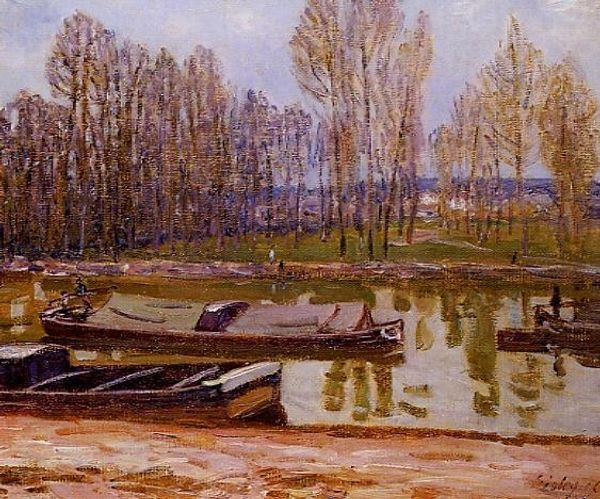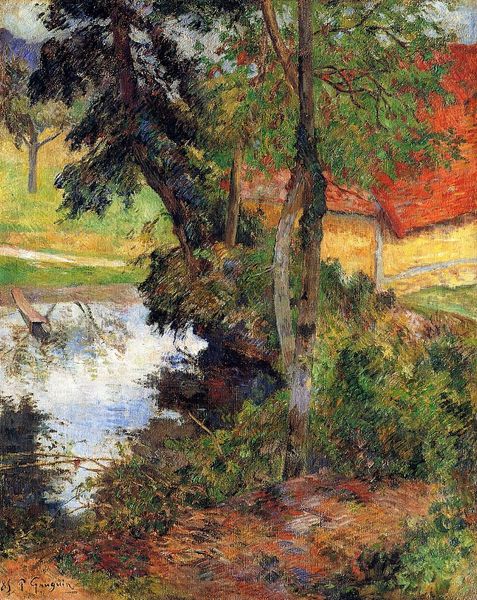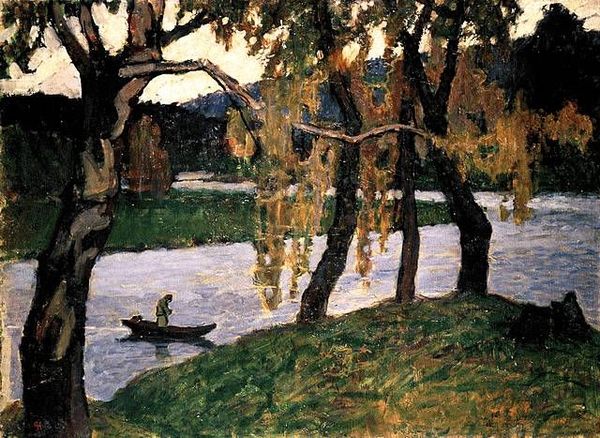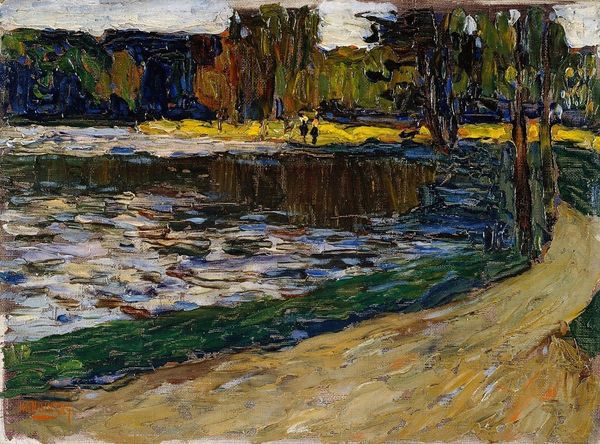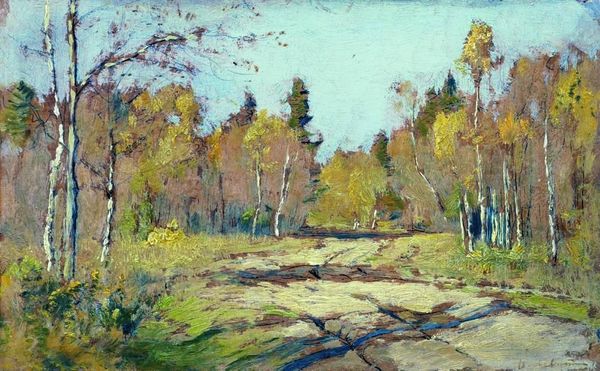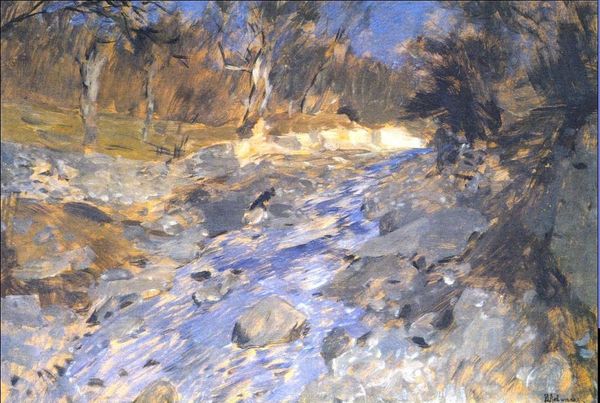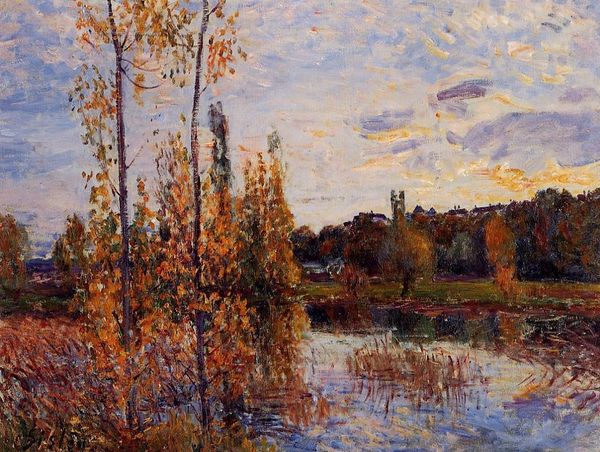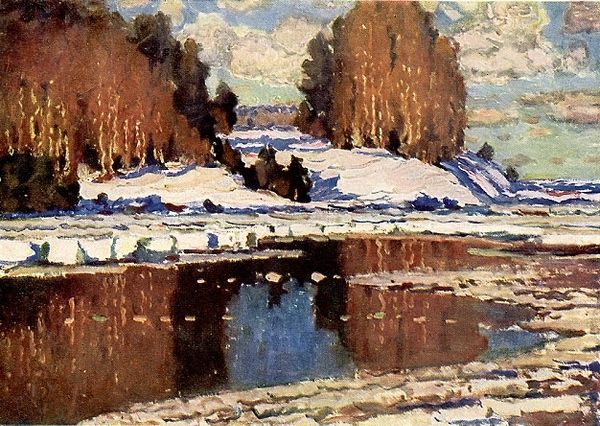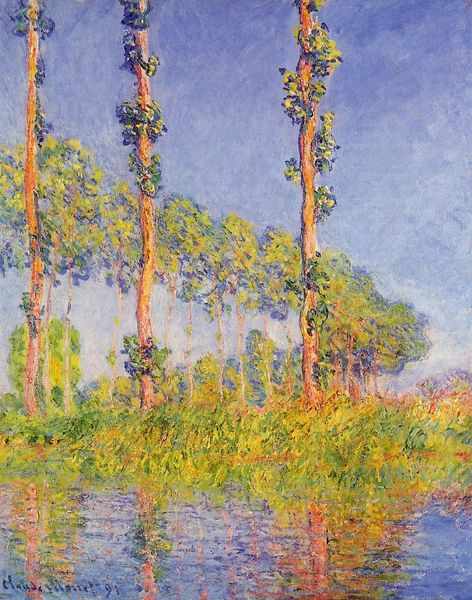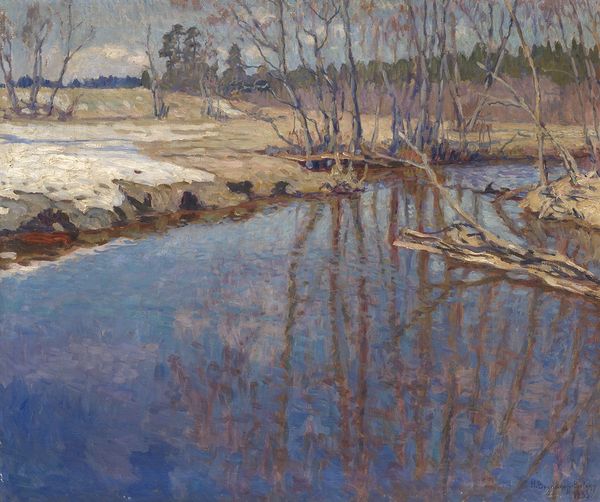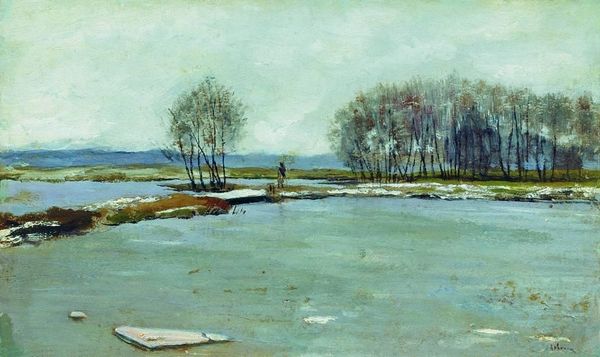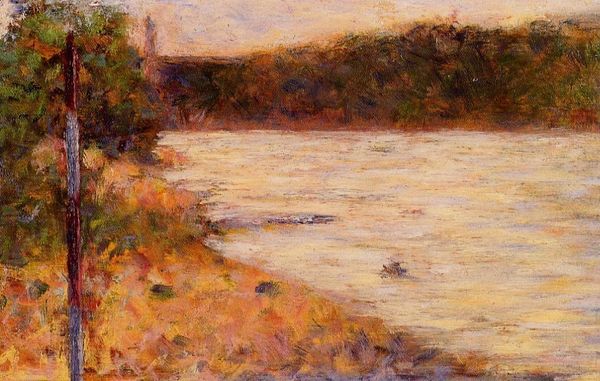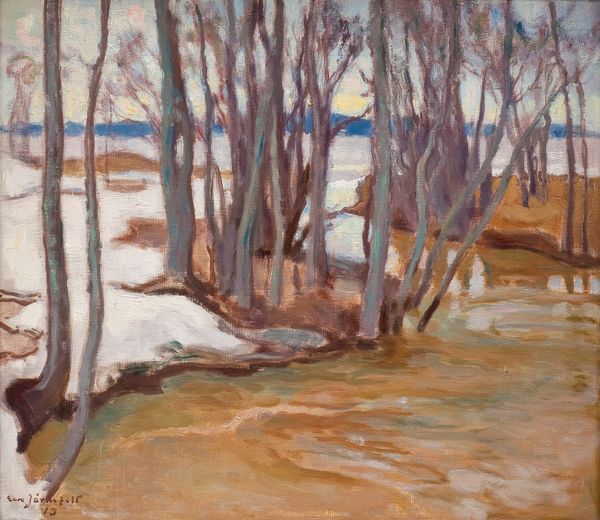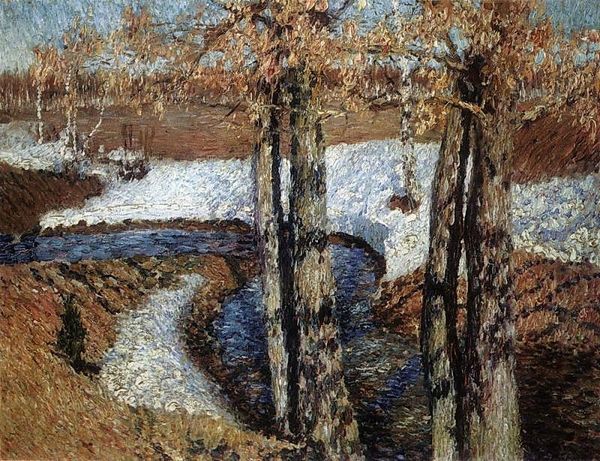
painting, plein-air, oil-paint
#
tree
#
impressionist
#
painting
#
impressionism
#
impressionist painting style
#
plein-air
#
oil-paint
#
landscape
#
impressionist landscape
#
oil painting
#
natural-landscape
#
water
Copyright: Public domain
Curator: Looking at Ferdynand Ruszczyc's "Krajobraz," a landscape painting executed with oil paints, one is immediately struck by its Impressionistic qualities. The brushstrokes are loose and capture the reflections in the water with remarkable deftness. Editor: It does have a very immediate appeal, doesn't it? I'm captivated by the shimmering effect – how the water becomes this ambiguous space, neither truly reflecting nor existing on its own. The almost-monochromatic palette reinforces that feeling of stillness, a suspended moment. Curator: Absolutely, and that stillness is crucial to understanding Ruszczyc's broader artistic concerns. Remember, he was working at a time of immense political and social upheaval in Poland. Landscape painting offered a space to explore themes of national identity, connection to the land, and a sense of rootedness. Editor: I see that connection to the land reinforced in how he handles texture. See how the thickly applied paint mimics the rough bark of the trees, grounding the ethereal reflections with material substance. And the way he simplifies forms—barely suggesting the distant fields—pulls our attention back to that foreground immediacy. Curator: Indeed. While appearing straightforward, paintings like "Krajobraz" were embedded in the debates about Polish modernism, rejecting academic traditions in favor of direct observation and personal expression, thus resonating deeply with nationalist sentiments. Its appeal lies not just in beauty, but also in its cultural context. Editor: Agreed, that contextual understanding enriches the work significantly. However, even divorced from historical context, there’s something profoundly satisfying about its formal harmony. It's as if the visible world is dissolved and reconstructed purely through the play of color and light. It transcends the particular landscape and enters something universal about perception itself. Curator: Yes, the beauty, I find, is a form of resistance against a climate that demands constant reinvention. Editor: That's an excellent way of thinking about it. I appreciate gaining that insight. Curator: Me too, and it reminds me to delve more deeply into the social undertones and contextual grounding, as your observations highlight so well.
Comments
No comments
Be the first to comment and join the conversation on the ultimate creative platform.
